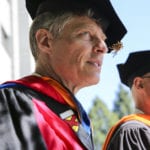LOVED: How to Rethink Marketing for Tech Products helps readers understand the fundamental purpose behind why marketing matters for every product and what is essential to do well.Most tech companies get product marketing wrong. LOVED is the next in the…
Category: silicon-valley
silicon-valley
Fung Institute celebrates 10 years with Lee Fleming
Fung Institute faculty director, Lee Fleming, has created a new model for students to learn and thrive at the intersection of technical and engineering leadership. This model has led to new methods of teaching and interdisciplinary learning, including …
Introducing the Fung Institute Advisory Board
By Lauren Leung
We are pleased to introduce our Fung Institute Advisory Board, composed of nine leaders across sectors in management, education leadership, and technology innovation. Each member of our board brings extensive experience and insight into guiding the strategic initiatives, growth, and future focus of the Institute.
Coleman Fung — Chair / CEO & Cofounder, Blue Goji Corporation
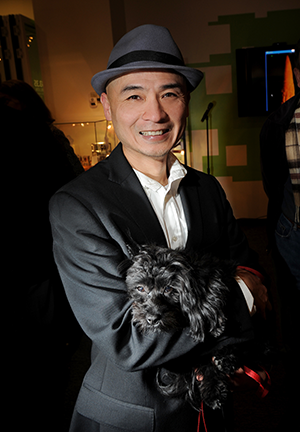
Coleman Fung is the co-founder and CEO of Blue Goji, a start-up developing the new field of Fun Activities as Medicine (FAM). FAM uses incentives, games and related gadgets, activities and activity tracking, biometrics and neural data, as well as wellness and health programs.
Previously, Coleman was the founder and Chief Executive Chairman of OpenLink, a company that developed trading, treasury and risk management solutions for financial, energy, and commodity markets. The company was chosen as the inaugural winner of Risk Management Innovator of the Year by Platts in 2007, and Coleman continues to be its Chairman of the Board.
Coleman also devotes significant amounts of his energy and resources to a number of worthy educational and environmental causes through the Coleman Fung Foundation, from creating the Coleman Fung Institute for Engineering Leadership and the Coleman Fung Risk Management Research Center at the University of California, Berkeley, funding a number of university and grade school chairs, developing/supporting creative educational programs for under-served minority kids, sending books and school supplies to Mali through a group of French high school students, funding the development of a nutrient trading protocol, supporting an integrated program to restore the watershed of Chesapeake Bay, to providing financial support to veteran housing and other worthy projects.
Coleman Fung holds a master’s degree in Industrial Engineering from Stanford University and a bachelor’s degree in Industrial Engineering and Operations Research from the University of California, Berkeley.
Tsu-Jae King Liu — Dean, College of Engineering
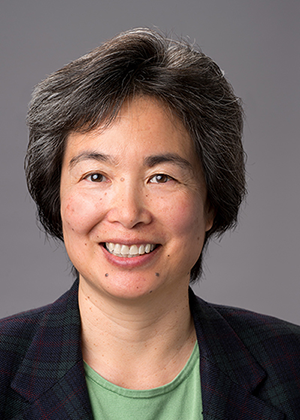
Tsu-Jae King Liu is Dean and Roy W. Carlson Professor of Engineering at UC Berkeley, where she has been a professor in the EECS department since 1996. She is best known for the development of polycrystalline silicon-germanium thin film technology for applications in integrated circuits and microsystems, and for co-developing the three-dimensional “FinFET” transistor design that is used in all leading-edge microprocessor chips today.
She earned her BS, MS, and PhD degrees in Electrical Engineering from Stanford University. Before joining the UC Berkeley faculty. she worked at the Xerox Palo Alto Research Center as a Member of Research Staff. Her awards include the DARPA Significant Technical Achievement Award (2000) for development of the FinFET, the IEEE Kiyo Tomiyasu Award (2010) for contributions to nanoscale MOS transistors, memory devices, and MEMs devices, the Semiconductor Industry Association Outstanding Researcher Award (2014), and the Semiconductor Research Corporation Aristotle Award (2016). She has authored or co-authored over 500 publications and holds over 90 patents. Liu is a Fellow of the IEEE, an elected member of the U.S. National Academy of Engineering, and a Fellow of the U.S. National Academy of Inventors. She also serves on the Board of Directors of Intel Corporation.
Achin Bhowmik — Chief Technology Officer & Executive Vice President of Engineering, Starkey Hearing Technologies
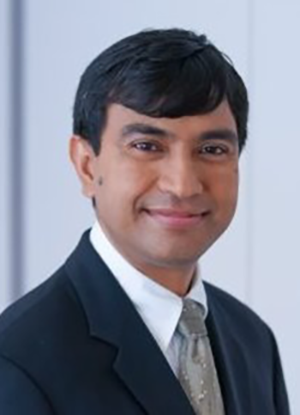
Dr. Achin Bhowmik is the chief technology officer and executive vice president of engineering at Starkey Hearing Technologies, a privately-held medical devices business with 6,000 employees and operations in over 100 countries worldwide. In this role, he is responsible for overseeing the company’s technology strategy, product development, and engineering departments, and is leading the drive to redefine medical wearable devices with advanced sensors and artificial intelligence technologies.
Prior to joining Starkey, Achin was vice president and general manager of the Perceptual Computing Group at Intel Corporation. There, he was responsible for the R&D, engineering, operations, and businesses in the areas of 3D sensing and interactive computing, computer vision and artificial intelligence, autonomous robots and drones, and immersive virtual and merged reality devices. Previously, he served as the chief of staff of the Personal Computing Group, Intel’s largest business unit with >$30B annual revenues in 2010.
As an adjunct professor and guest lecturer, Achin advises graduate research and teaches courses on human-computer interactions and perceptual computing technologies at the University of California, Berkeley; Stanford University; Liquid Crystal Institute of the Kent State University; Kyung Hee University, Seoul; and the Indian Institute of Technology, Gandhinagar.
Achin was elected a Fellow of the Society for Information Display (SID). He serves on the board of advisors for the Fung Institute for Engineering Leadership at UC Berkeley, the executive board for SID, and the board of directors for OpenCV. He also serves on the board of directors and advisors for several technology startup companies. He received the Industrial Distinguished Leader Award from the Asia-Pacific Signal and Information Processing Association. He has over 200 publications, including two books and 34 issued patents.
Vinod Philip — CEO of Service Power Generation, Siemens Gas and Power
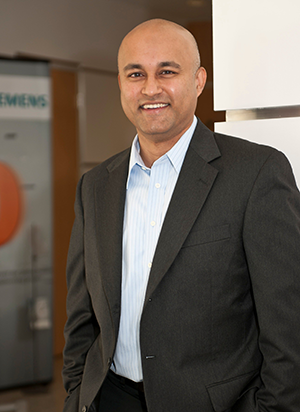
Vinod is the CEO of Service Power Generation at Gas and Power at Siemens and located in Berlin, Germany. He started working for Westinghouse Electric Corporation in 1997, later Siemens, and quickly assumed management positions with increasing responsibility, among them Head of Gas Turbine Engineering from 2010–2013 and CEO of the Generator Business Segment from 2013–15.
In his most previous role as Chief Technology Officer in the Power and Gas Division, Vinod was responsible for defining and implementing the technology and innovations roadmap for the Division.
Vinod holds a master’s degree in Materials Science and Engineering from the University of Central Florida and also received a master’s degree in Business Administration in International Business from Rollins College, Florida.
Warren Reed — Executive Director, JPMorgan
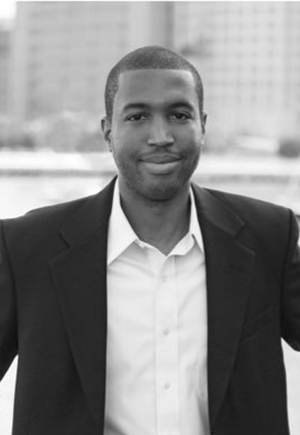
Warren Reed is the Executive Director of Wholesale Payments at JPMorgan, using data, design, and business principles to create and build AI data that— balance the art of decision making with science.
Prior, he was the Manager for Metrics and Monitors at the Monitors Program in the Office of Financial Research at the U.S. Department of the Treasury, a multi-year, multi-million dollar program that developed a suite of tools to assess, measure and monitor risk across the financial system.
Warren is an alumnus of New York University and Columbia University.
Dr. Venkata (Murthy) Renduchintala — Group President & Chief Engineering Officer, Intel Corporation
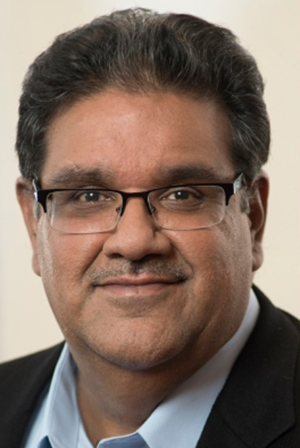
Dr. Venkata (Murthy) M. Renduchintala is the group president of the Technology, Systems Architecture & Client Group and chief engineering officer at Intel Corporation. The group is responsible for aligning technology, engineering, product design, and business direction to extend Intel’s strategy and speed execution across the client device and IoT segments — all core to growth in the smart and connected compute era. Murthy’s group brings together Intel’s Platform Engineering, Client Computing, IoT, Software and Services, and Design and Technology Solutions as they share a common set of technologies required for client/mobile System on Chip (SoC) and connectivity leadership.
Murthy has spent a substantial part of his career in the SoC, mobile, and IoT areas. Prior to joining Intel, he was executive vice president of Qualcomm Technologies Inc. and co-president of Qualcomm CDMA Technologies, where he led its semiconductor business in the computing and mobile segments. He joined Qualcomm in 2004 from Skyworks Solutions Inc./Conexant Systems Inc., where he was vice president and general manager of the company’s Cellular Systems Division. Prior to Skyworks, he spent a decade with Philips Electronics, where he progressed to become vice president of engineering for its consumer communications business.
Murthy holds a bachelor’s degree in Electrical Engineering, a master’s degree in Business Administration and a PhD in Digital Communications from the University of Bradford in England.
Rendel Rieckmann —Head of Secure Communications Business, Airbus Defence and Space, Germany
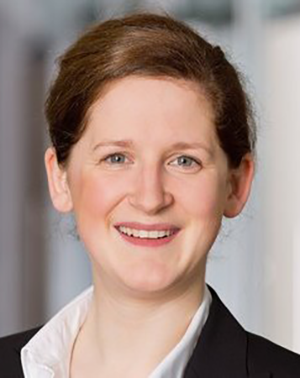
Rendel Rieckmann is an MEng alumna from the Class of 2014. Before coming to Berkeley, she studied Industrial Engineering and Business Management in Germany and Australia and worked in various positions around manufacturing and performance management. Since graduating from the MEng program, Rendel has worked as a consultant at McKinsey & Company advising clients mainly in the Operations sector in all sorts of advanced industries in Europe and Africa. Being younger than most of her employees’ tenure, she took over the role of Head of Solar Array Production at Airbus Defence and Space, which produces solar generators for all types of satellites in Ottobrunn (near Munich) and Leiden (near Holland). Since 2019, Rendel moved into Profit and Loss responsibility as the Head of Secure Communications Business Germany. The business takes care of various communication solutions and services especially in remote areas where satellites are needed.
Leyla Seka, Partner Operator Collective
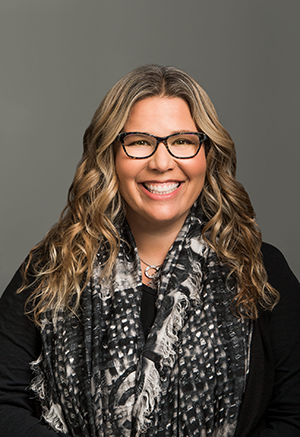
Leyla Seka spent over 11 years at Salesforce where she most recently served as the executive vice president of the Salesforce Mobile platform experience, enabling all customers to unlock the power of Salesforce from anywhere. Prior to her current role, Leyla was executive vice president of the Salesforce AppExchange, where she launched a refreshed AppExchange storefront, a new partner program, and built an entire AppExchange-focused team, resulting in more than 4,000 solutions, installed nearly 6 million times. Leyla was also the executive sponsor of BOLDforce, Salesforce’s organization for expanding and empowering the black community at Salesforce. Before joining Salesforce, Leyla worked in product management and marketing organizations at Primavera Systems (acquired by Oracle), Evolve Software, Vivant and Eutron SPA. Prior to working in technology, Leyla spent two years in Mali, West Africa, as a Peace Corps officer.
Leyla holds a bachelor’s degree in International Relations and French from the University of California, Davis, and a master’s degree in Business Administration from the Masagung School of Management at the University of San Francisco. She is active in women in technology and equal-pay issues and was named a “Next-Gen Innovator” by Forbes.
Lee Fleming — Faculty Director, Fung Institute
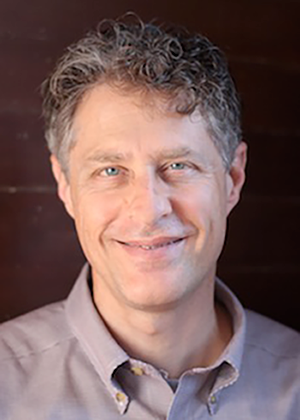
Professor Lee Fleming joined the IEOR Department at UC Berkeley in Fall 2011 and is the Faculty Director of the Coleman Fung Institute of Engineering Leadership. He teaches engineering leadership and a capstone lab within the Masters of Engineering curriculum. His research applies machine learning and NLP techniques on large datasets with causal inference models from management and social science. His work investigates how mobility influences creative output, innovative search strategy drives firm performance, non-competes change labor mobility and entrepreneurship, governance influences innovation, and investors value innovation search strategies. His recent work published in Science illustrates how almost one-third of U.S. patents rely on government-funded research.
Lee earned his bachelor’s degree in Electrical Engineering at UC Davis. He went on to earn a master’s in Engineering Management from Stanford University in the Honors Cooperative Program. He then received his PhD in Organizational Behavior in the Department of Industrial Engineering at Stanford. Lee also completed a master’s in Statistics during his doctoral years. Between 1998 and 2011, he was a professor at the Harvard Business School, most recently as the Albert J. Weatherhead III Professor of Business Administration.
Professor Fleming is an avid cyclist and rides his bike to work whenever possible. On rainy days he prefers to run and slog through the mud. He has been a professional musician (and member of the AFL CIO), a blackjack dealer, and a cycling teammate of Andy Hampsten.
Read more at about our advisory board members // Edited by Lauren Leung
Introducing the Fung Institute Advisory Board was originally published in Berkeley Master of Engineering on Medium, where people are continuing the conversation by highlighting and responding to this story.
Leyla Seka: ‘Challenge the bias that’s intrinsically built into today’s products’
Leyla Seka, EVP of Mobile at Salesforce: ‘Challenge the bias that’s intrinsically built into today’s products’By Ashley VillanuevaLeyla Seka, Executive Vice President of Mobile at SalesforceOn Friday, January 11, 2019, Leyla Seka, executive vice presid…
Flex is Changing the Innovation Game
Written by Suneesh Kaul, Edited by Maya Rector

Flex is a Fortune-500 supply-chain solutions and manufacturing firm with operations in over 30 countries offering design, manufacturing, distribution and aftermarket services to a variety of global OEMs and other product based firms.
Predictive maintenance, self-optimizing production, and automated inventory management are the top three use-cases driving the Internet of Things (IoT) market growth through 2020 to the amount of $270B. Flex is a big player in the IoT space, producing and helping produce solutions involving tons of connected, intelligent devices that enable IoT in a variety of settings. We call it “Intelligence of Things”.
Internet of Things only means connectivity, but we are also putting a lot more intelligence into the end devices and that means building smart and connected devices — so it’s more than just the Internet. [1]
For instance, recently Flex described several innovations the company has pioneered which mix the sensing and electronic capabilities of a digital circuit with the stretchiness and washability required of a garment through IoT. Smart, connected solutions have enabled the wearable market to move beyond the wrist and become an integral part of someone’s daily outfit. Flex is empowering fashion designers to make technology a part of their vision as more and more customers expect fashion to integrate with their smartphone or connected device.
Imagine someone being able to tap into the power of a solar powered jacket when they suddenly realize that they’re off the path and night is getting closer. Maintaining a GPS signal can use a significant amount of battery as can connecting to remote cell towers in the woods. But if their smartphone has been charging in the afternoon sun courtesy of their solar jacket, they’ll be ready to find their way back home safely and securely.
Solar powered clothing can do more than avoid having to recharge on the go — consider clothing that automatically adjusts tiny vents to make a shirt warmer on a chilly day, or let in more airflow during a hot, challenging run. Clothing that is automatically smarter (and more comfortable) is within reach.
While at Flex, I have been engaged with the Global Supply-Chain organization to develop revolutionary solutions which can support this growth. One of our recent ventures is to transform the application of ‘Blockchains’ from the Finance industry to the Supply-Chain industry.
Blockchains are pegged to be the next internet [2] and will revolutionize the way we conduct business in the future. A Blockchain is a peer-to-peer distributed ledger forged by consensus, which can be used to build a new generation of transactional applications in-order to streamline business processes and legal constraints. [3]
Blockchain is the foundation on which Bitcoin transactions take place; we at Flex are exploring its applicability into recording the movement of goods in a complex global network across 100+ countries.
How’s that for complexity and scale?
Blockchain’s distributed ledger technology would register the transfer of goods on the ledger as transactions and would identify the parties involved, as well as the price, date, location, quality and any other information that would be relevant to managing the supply chain. Consequently, it would be possible to trace back every product to the very origin of the raw material used, its provenance.
Additionally, the decentralized structure of the ledger makes it impossible for any one party to hold ownership of the ledger and manipulate the data to their own advantage. [4]
Simply put, it ensures both transparency and security while building trust among the parties involved.
It’s an exciting time to be working at Flex; and it’s a remarkable feeling to have been given the opportunity to transform the business of tomorrow at this stage in my career.
Check out Flex’s Intelligence (TM) magazine at https://lnkd.in/gXmXhRi
Sources
[1] http://www.pymnts.com/internet-of-things/2016/flex-on-iot-the-5-biggest-opportunities/
[3] http://www.supplychain247.com/article/why_blockchain_is_a_game_changer_for_the_supply_chain
[4] https://techcrunch.com/2016/11/24/blockchain-has-the-potential-to-revolutionize-the-supply-chain/
Flex is Changing the Innovation Game was originally published in Berkeley Master of Engineering on Medium, where people are continuing the conversation by highlighting and responding to this story.



